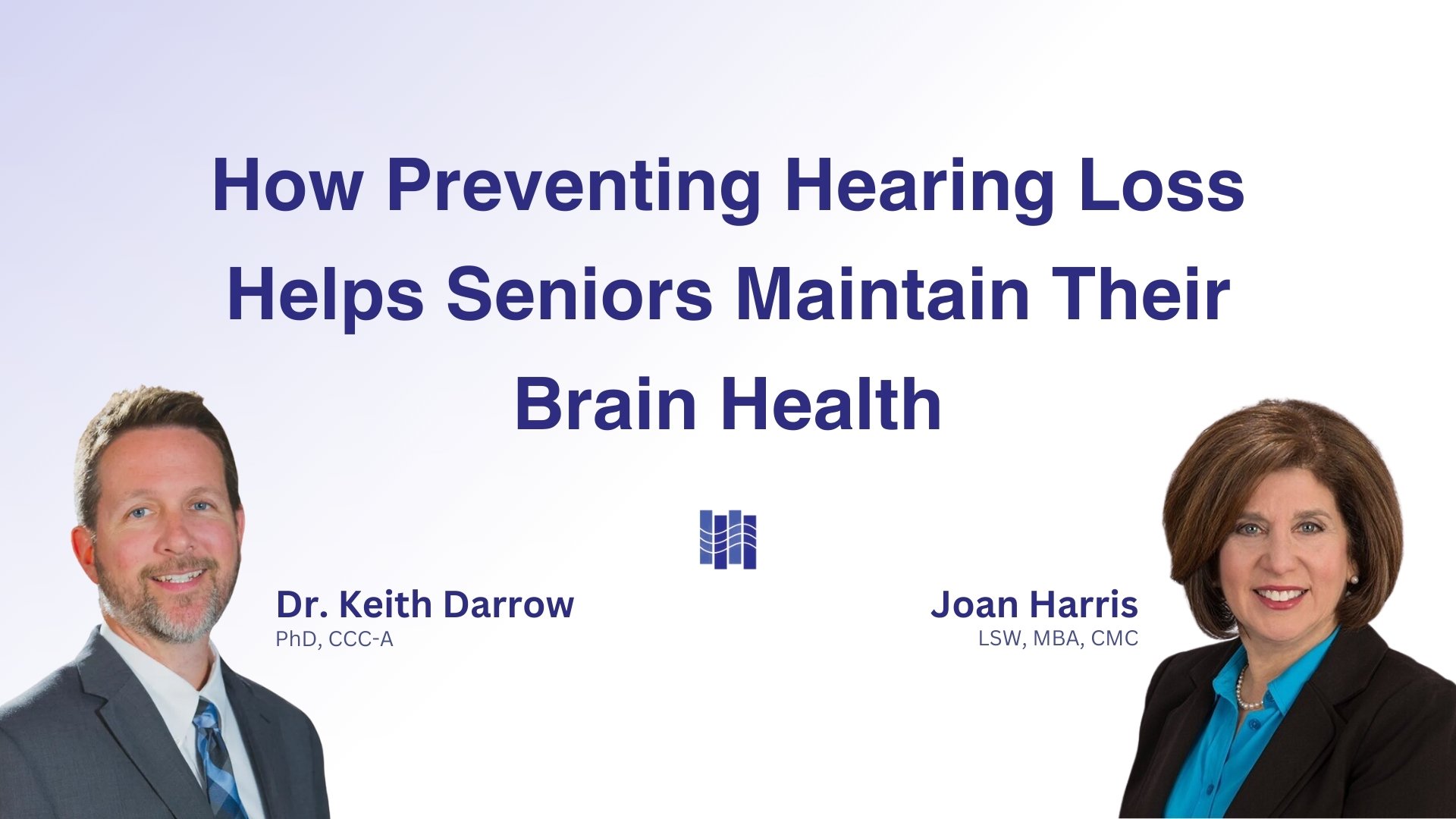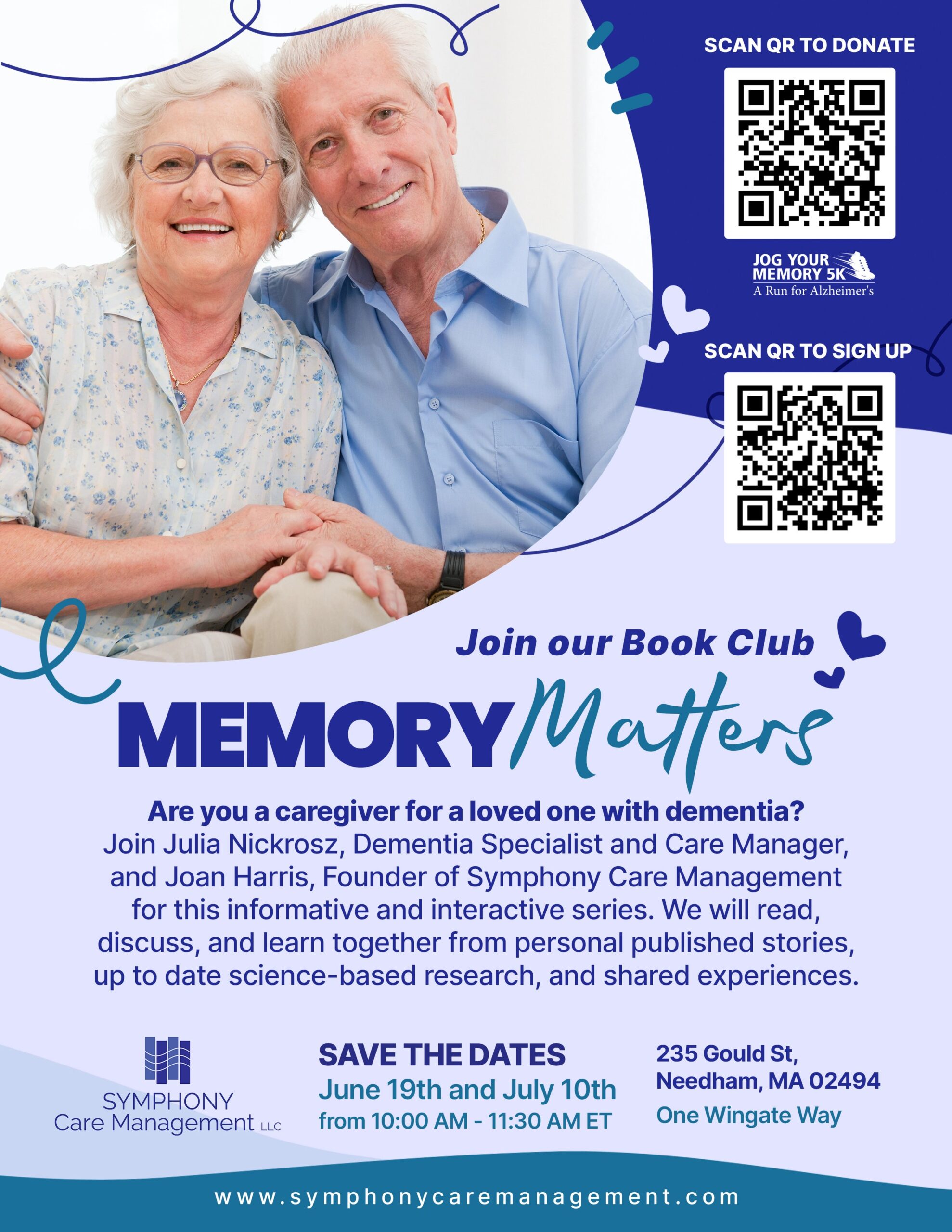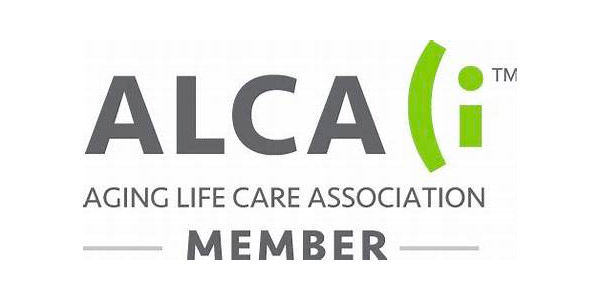Welcome to Our June Newsletter

As summer begins to shine, we’re thrilled to share updates on our programs and services. The month of June is Alzheimer’s Disease and Brain Health Awareness month. Therefore, we have included expert advice on overcoming some of life’s challenges. Dive into our collection of content designed to inform and inspire you this June!
Here are the main topics covered:
- Warm Weather Risks for Clients with Dementia
- Travel Tips for Individuals with Alzheimer’s Disease & Related Disorders
- Joan Harris Interviews Dr. Keith Darrow, Ph.D, CCC-A M.I.T. and Harvard Medical School trained Neuroscientist, Clinical Audiologist: Preventing and Correcting Hearing Loss Benefits and Maintains Brain Health
- Our Memory Matters Book Club’s First Session Was a Great Success!
- Joan Harris presented ‘How to Plan Ahead for Your Older Years’ at a Women’s Event hosted by Twelve Points Wealth Management, alongside Deborah Cartisser, Wealth Manager
- Flag Day Reflections:Memories of Family and Tradition

Warm Weather Risks for Clients with Dementia
By Joan Harris, LSW, MBA, CMC
For individuals with a variety of progressive neurodegenerative diagnosis, making transitions from season to season in New England with temperature fluctuations can be difficult. In our Care Management practice, we coach our caregivers with the strategies to support these important seasonal changes and each client has a hot weather care plan.
Making changes in routines is extremely difficult for people with dementia. Some of the strategies that can help are: At the end of winter, when it finally gets warm, pack up all your loved one’s winter clothes and put them in a labeled bin and store them out of their space (ie., basement, garage). Bring to their bedroom their summer clothes and lightweight jackets or sweaters and of course some sun hats. Together, you can unpack them and talk about the nice things you can do in the good weather like walking outside on a nice day. If there is resistance to making the switch, do it slowly, taking the heaviest winter clothes out first. If your loved one lacks judgment, supervision is critical.
Older adults often do not drink enough water. I have been told by many physicians that as people age, they feel less thirsty. See the Cleveland clinic’s article May 29, 2023 titled, “Drink up, The connection between age and dehydration”. The article states that people over 65 simply have less fluid in their body than younger people. “By the time an older adult feels thirsty, that’s already an indication of early dehydration,” says Vanderbilt. “Adding to the problem is that symptoms of dehydration in older adults often go unrecognized,” she adds. “Symptoms can be easily attributed to other medical conditions, medications or natural effects of aging.”
The Cleveland Clinic Article states clearly the following symptoms and risks of dehydration:
What are signs of dehydration?
Dehydration can affect you physically, mentally, and emotionally, as blood vessels in your brain and throughout your body constrict due to dwindling fluid levels. Physical signs of dehydration include:
● Fatigue and weakness.
● Dizziness or loss of coordination.
● Dry mouth and/or a dry cough.
● Headache.
● Muscle cramps due to the loss of electrolytes through sweating.
● Chills or heat intolerance.
● Flushed skin.
Someone who is dehydrated also may seem confused, cranky, or anxious. (These symptoms may appear worse in someone who has dementia, a group of diseases that can affect memory and behavior. It is estimated that about 50% of people aged 85 and older have dementia.)
Persistent dehydration that causes more severe symptoms can land older adults in an emergency room or hospital.
I happen to live in an area where many of my clients also reside. On a Saturday, when it was 84 degrees and not one cloud in the sky, I was at a local outdoor garden shop purchasing flowers to plant. It was hot. I was wearing shorts and of course a hat. I had a water bottle in the car with me. While looking at a beautiful pot of geraniums, I looked up and saw my clients, Mr. & Mrs. A who live nearby. Mrs. A has advanced Alzheimer’s disease and Mr. A has significant short term memory loss with little insight around his deficits. They now have a live-in caregiver for safety because Mrs. A cannot be left alone. She will wander out of the home. Mr. A does not always pay attention to Mrs. A when he gets busy in a store so we had instructed the caregiver to go with them when they go out. At the garden center, Mrs. A had long pants on, and had no hat on. She looked dazed and most likely was more confused. Mr. A was busy looking at flowers walking away from her without seeing if she was following him. There was no caregiver with them. If Mrs. A. wandered away on a hot day in the summer months, this is equally as dangerous as wandering away in the cold winter months.
At Symphony Care Management, we put into place a hot weather plan for every client to ensure they are safe and comfortable. What is your plan?

Health Tips and Resources
Travel Tips for Individuals with Alzheimer’s Disease & Related Disorders
by Jean Clements, Certified Engagement Specialist
● Plan ahead: Discuss the trip and itinerary ahead of time. Research rest areas and restaurants along the way for breaks and snacks if traveling by car. Allow plenty of time for rest and avoid over scheduling with events and visits. Bring activities that are calming such as coloring books, puzzles, headphones for music, photo books, a fidget blanket, or a weighted anxiety doll or animal for longer traveling trips.
● Time your travel: Is there a better time of the day for the person with dementia? Try to plan accordingly. Most likely reaching your destination before the late hours of the afternoon are going to be best for an individual with dementia. The more tired they are, the more confused or agitated they can become depending on the stage of their cognitive impairment.
● Include a bag of necessities at all times: Medications, change of clothes, undergarments if used, water, and snacks. Be sure to include enough medications to get through the trip, plus a little extra in case of any unexpected stays. Keep your medications in their original, labeled bottles. If you need to refill your medications early, contact your Provider if they will extend your supply from a 30-day to a 60-day or 90-day supply depending on the medication. Additionally, some insurance companies can provide a vacation override. You can ask your pharmacy to contact your insurance company. The insurance company will then provide an override which will allow your medication to be filled earlier than expected. Check with your insurance plan ahead of time as this can vary from plan to plan. Also check with your Medicare plan by contacting Member Services for assistance if they would approve a vacation override for your medications.
● Take important health and legal documents: Documents such as Vial of Life form provides emergency personnel critical information about your loved one’s diagnosis, medication list and emergency contact information. Include copies of their health care proxy and any additional advanced directives with the vial of life form.
● Maintain daily routines: This includes eating, sleeping and waking up at their usual times to avoid any sleep or major stress issues. For more information contact Symphony Care Management.
Sources:

Joan Harris Interviews Dr. Keith Darrow, Ph.D, CCC-A M.I.T. and Harvard Medical School trained Neuroscientist, Clinical Audiologist: Preventing and Correcting Hearing Loss Benefits and Maintains Brain Health
SCM’s Highlights
I am thrilled to share that I recently had the pleasure of chatting with Dr. Keith Darrow about the impact of preventing hearing loss on maintaining brain health for seniors. We explored how better hearing can lead to better cognitive well-being. It’s an insightful conversation filled with valuable information, and I recommend watching it to learn more about this important topic!

Helpful Resources
Our Memory Matters Book Club’s First Session Was a Great Success!
 Julia Nickrosz,CDP did a wonderful job leading our discussion and delving into the reading assignments giving attendees insights and knowledge. There were wonderful discussions, sharing of personal experiences and strategies for how to integrate the 6 domains of Habilitation Therapy into daily life with loved ones who have cognitive impairment.
Julia Nickrosz,CDP did a wonderful job leading our discussion and delving into the reading assignments giving attendees insights and knowledge. There were wonderful discussions, sharing of personal experiences and strategies for how to integrate the 6 domains of Habilitation Therapy into daily life with loved ones who have cognitive impairment.
In our next session we will build on the foundation of knowledge we discussed. We will send out new assignments, present real life scenarios and do some role playing to enhance your skill level and deepen your understanding of this proven gold standard of care.
You can join our second session even if you missed the first one. If you cannot attend and want to schedule a private Zoom session with Julia Nickrosz, Dementia Specialist/Care Manager, we would be happy to do that for you. We can record the session and send it to you so that you have it as a resource.

More News
Joan Harris presented ‘How to Plan Ahead for Your Older Years’ at a Women’s Event hosted by Twelve Points Wealth Management, alongside Deborah Cartisser, Wealth Manager
 I am deeply grateful for the opportunity to be a guest speaker at a recent event hosted by a leading Wealth Management Company. It was an honor to share my Roadmap to your Best Retirement Life Planning Program/Aging GPS, experience, insights and connect with such a distinguished audience.
I am deeply grateful for the opportunity to be a guest speaker at a recent event hosted by a leading Wealth Management Company. It was an honor to share my Roadmap to your Best Retirement Life Planning Program/Aging GPS, experience, insights and connect with such a distinguished audience.
Thank you to everyone involved for making this experience so memorable!


Flag Day Reflections:Memories of Family and Tradition
In my latest blog post, I fondly recall cherished moments with my grandmother, Mildred Wolper, affectionately known as Nana Millie, who was born on Flag Day in 1900. Every Friday evening, our family gathered at Nana Millie and Papa Sam’s cozy apartment for dinner, forging enduring memories that have shaped my life.
Whether I was helping Nana prepare rugelach or engaging in spirited discussions with Papa Sam about politics, these times were imbued with warmth and love.

We hope you found this content both helpful and engaging. Stay tuned for more valuable updates and resources to enhance your quality of life.
Wishing you a wonderful end of June!🌷
Join our newsletter below for a monthly dose of wellness straight to your inbox, from your friends at Symphony Care Management.



